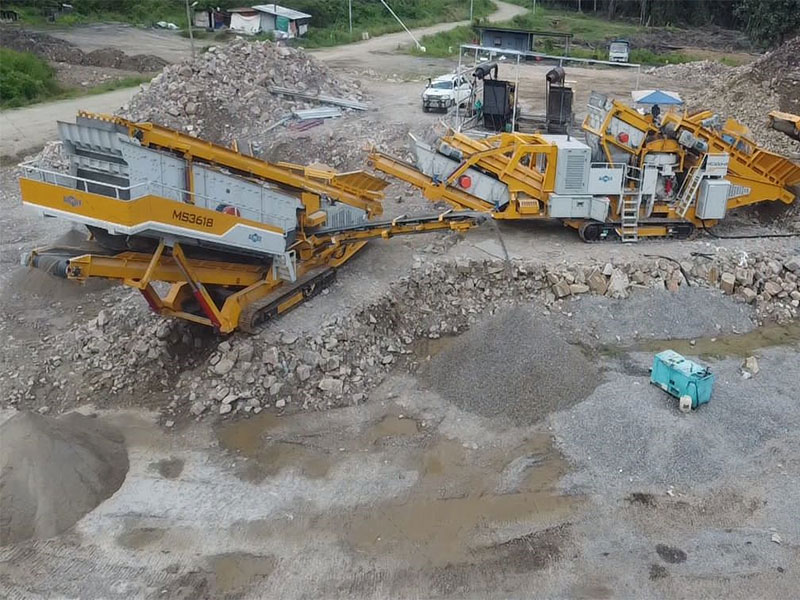The production of gravel, a crucial raw material in construction and infrastructure development, can have significant environmental impacts if not managed properly. To mitigate these effects and protect the environment, it is essential to adopt sustainable practices in the gravel crusher production process. In this article, we will explore various ways to safeguard the environment during gravel crusher production.
Site Selection and Planning:
Selecting an appropriate location for the gravel crusher is the first step in environmental protection. Choose sites that minimize the potential for habitat disruption, water contamination, and air pollution. Comprehensive planning should consider factors such as proximity to water bodies, wildlife habitats, and residential areas.
Water Management:
Water is a critical component in gravel production, and efficient water management is essential for environmental protection. Implement best practices for managing water resources, including:
Implementing sediment control measures to prevent soil and sediment runoff into nearby water bodies. Designing sedimentation ponds to capture and treat runoff water.
Using water recycling systems to reduce water consumption and discharge.
Dust Control:
Dust generated during the crushing and screening of gravel can pose a significant environmental and health hazard. Effective dust control measures include:
Spraying water or dust suppressants to minimize airborne dust particles. Implementing enclosed crushing and screening equipment to contain dust. Installing dust collection systems to capture and control airborne dust.
Noise Reduction:
Noise pollution from gravel crusher operations can negatively impact nearby communities and wildlife. To minimize noise pollution, consider the following measures:Use noise-reducing technologies and equipment. Implement noise barriers or sound insulation around crusher sites. Schedule crushing and screening operations during less sensitive hours.
Energy Efficiency:
Reducing energy consumption in gravel crusher production not only reduces operational costs but also lowers greenhouse gas emissions. Ways to improve energy efficiency include:Regularly maintaining and tuning equipment to ensure optimal performance. Adopting energy-efficient motors and power sources. Promoting energy conservation among personnel.
Environmental Impact Assessments:
Conduct environmental impact assessments before initiating gravel crusher operations. These assessments help identify potential environmental risks and develop strategies to mitigate them. Assessments should include the examination of air quality, water quality, soil stability, and habitat preservation.
Reclamation and Site Rehabilitation:
Commit to reclamation and site rehabilitation efforts to restore the land to its original state or to a beneficial alternative use after gravel extraction is complete. This includes re-establishing vegetation, contouring land, and controlling erosion.
Responsible Material Sourcing:
Responsible material sourcing involves obtaining gravel from reputable suppliers who adhere to environmental and sustainability standards. Choosing suppliers with certified sustainable practices ensures that the gravel used in production has minimal environmental impact.
Regulatory Compliance:
Adherence to local, state, and federal regulations is crucial for environmental protection. Ensure that gravel crusher operations comply with all environmental laws, permits, and requirements. Regularly monitor and report environmental metrics to regulatory agencies.
Employee Training and Awareness:
Empower your workforce with environmental awareness and training programs. When employees are knowledgeable about environmental best practices, they are more likely to actively participate in and support environmental protection efforts.
Community Engagement:
Engage with local communities to address their concerns and establish open lines of communication. This fosters a collaborative approach to environmental protection and demonstrates a commitment to being a responsible neighbor.
Continuous Improvement:
Environmental protection is an ongoing commitment. Regularly review and evaluate gravel crusher production processes to identify areas for improvement. Embrace emerging technologies and best practices to enhance environmental performance.
Conclusion:
Environmental protection during gravel crusher production is an essential aspect of responsible and sustainable business practices. By adopting environmentally friendly strategies, such as site selection and planning, water management, dust control, noise reduction, and energy efficiency, companies can minimize their environmental footprint and contribute to a healthier planet.
Compliance with regulations, employee training, community engagement, and continuous improvement further solidify the commitment to environmental preservation. In the aggregate industry, prioritizing the environment is not only a social responsibility but also a crucial element of long-term business success.


Comments
No comments yet. Be the first to react!